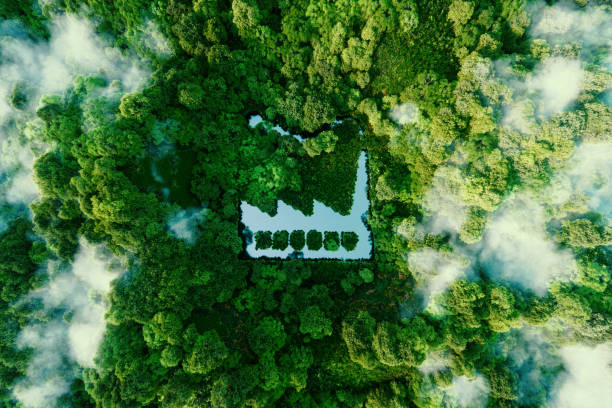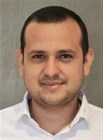Sustainability Assessment of Bio-Based Products

Do you want to learn the quantification of sustainability of bio-based processes in a commercial, societal and planetary context?
This three-day course provides participants with the fundamental concepts and perspectives related to sustainable bio-based products, delivered by a diverse range of university teachers and guest lecturers.
Our aim is to share our expertise on developing sustainable technologies to help industrial and academic professionals measure bio-based technologies’ sustainability performance.
During the course, you will acquire the following skills:
- An overview of the fundamentals of bio-based production, supply chain, and life cycles in biotechnology
- The ability to identify quantifiable key environmental, societal, and economic indicators
- To be able to quantitatively assess and combine environmental and economic sustainability in biotechnology, based on life cycle assessment (LCA) and techno-economic assessment (TEA) approaches
- Translate sustainability assessment results into informed decisions relevant to biotechnology R&D, resulting from a basic introduction to the concept of sustainability and a comprehensive evaluation of the environmental performance of specific bio-based products and technology life cycles.
- Understanding how to utilize existing LCA’s and TEA’s as strategic tools in steering innovation towards sustainability in a commercial and planetary context.
PhD students are eligible for a 25% discount on the course fee and can earn 2 to 3 ECTS credits, depending on the type of project involved. For project inquiries, please reach out to the course lead, Sumesh Sukumara (susu@biosustain.dtu.dk).
Course schedule
Day 1
- Introduction to sustainability assessments
- Sustainability definitions
- Absolute sustainability and planetary boundaries
- Sustainability in a Biotech context & tools to assess sustainability.
Day 2
- Assessing economic viability of bio-based processes
- Assessing environmental sustainability of bioproducts
- Socio-economic and behavioural aspects affecting sustainability.
Day 3
- Policy implications and need for sustainability assessment.
- Transition from relative to absolute sustainability
- Hands-on activation exercise to practice the theory quantitative sustainability assessments with relevant bioproduct examples.
* The course schedule is subject to possible adjustments
Learning Outcomes
By the end of the course, you will have a basic understanding of the methods used in quantifying sustainability. You will:
- Become familiar with the prevailing definitons of sustainability, the history of sustainability as a concept, and the development of the United Nations’ Sustainable Development Goals (SDGs)
- Understand the importance of considering the whole life cycle when evaluating sustainability in a biotechnology context
- Be able to identify the major drivers of impact when assessing the sustainability of a product and its functionalities
- Develop critical thinking skills to analyze sustainability assessments and Environmental Product Declarations (EPDs)
- Gain an overview of the tools used to quantify bio-based products’ economic and environmental performance
- Understand the trade-offs between economic and environment impacts.
- Understand the concepts of planetary boundaries and absolute Sustainability
Who should attend?
The course is tuned to a wide range of audiences from industry and academia in the life science sector to understand, critique, communicate and make informed decisions to quantitatively assess and improve bio-based products and technologies’ economic and environmental sustainability performance.
This course is especially beneficial for professionals with background, skills, or experience in the following areas:
- Natural scientists from different field of expertise.
- Engineering, agro-science, and production disciplines from design, planning, R&D, and operations
- Postdocs and senior scientists who want to update themselves in a sustainability assessment
- Non-scientific professionals from administration, finance, sales, or other non-technical disciplines, seeking a thorough understanding of sustainability and assessment tools.
Prerequisites
Participants do not need to have specific knowledge in the field of biotechnology other than a basic high-school-level understanding of natural sciences. The course material comprises practice exercises, and we expect participants to be able to use MS Excel.
Important information
Here you will find important information for short course participants regarding cancellation policies, location and waitlist policies.
Registration
To register for the course please click “Add to basket” .
In case, you have any questions related to your registration, please contact Course Coordinator Ida Christina Rasmussen idaras@dtu.dk.
Discount for start-ups and academics
We offer employees in start-up companies, educational institutions and the public sector a 25% course fee reduction. Tick off the relevant boxes in the registration form to apply for this discount. You will get to the registration form when adding the course to the basket.
Companies wishing to arrange a tailored/private course are more than welcome to contact us to discuss this opportunity.
The FBM initiative – funded by the Novo Nordisk Foundation
This course was developed in the framework of the Fermentation Based Biomanufacturing Initiative, in collaboration between DTU Bioengineering, DTU Biosustain, and DTU Chemical Engineering. The project is funded by the Novo Nordisk Foundation.
Course instructors
Registration
| Duration | 3 days |
|---|---|
| Place | DTU Lyngby Campus |
| Buy | See available discounts at the bottom of the page |
| Variant | 4th-6th March 2025 |
| Price |
21.000,00 DKK |
|---|

Questions?
Contact Sumesh Sukumara about academic content
Senior Researcher
Phone: (+45) 93 51 12 08
Email: susu@biosustain.dtu.dk
Questions?
Contact Khaled Chatila about registration
Phone: (+45) 45 25 26 39
Email: khachat@dtu.dk
For companies
Are you looking to educate several employees with a course or a degree?
Mail us at learnforlife@dtu.dk





